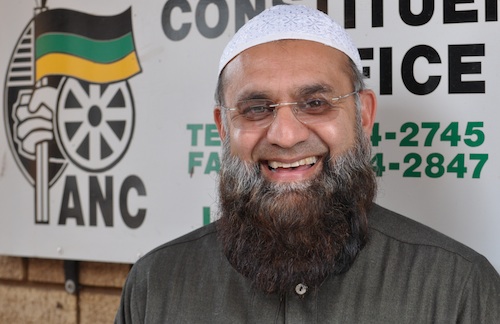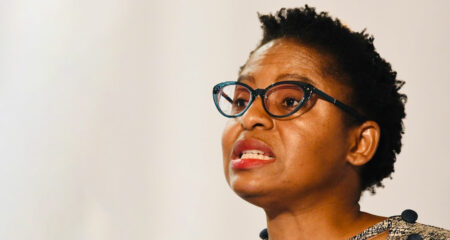
[By Ismail Vadi]
The latest edition of the magazine, African Communications, carries a feature article by Arthur Goldstuck on the key trends in the information and communications technology (ICT) sector since last year. In it he states:
While SA’s telecommunications sector experienced a number of earthquakes in 2009, 2010 seems set to bring the tsunami. Last year was breathtaking in the scope and scale of events in the industry. The divorce between Telkom and Vodacom; the collapse of the Bharti- MTN merger; the landing of the Seacom undersea cable; the first reduction ever in interconnect fees for calls between SA mobile operators; and the beginning of the roll-out of new fibre-optic backbones across Africa means that nothing will ever be the same again.
This year, he said, will see the implications of all these events not only becoming clear, but also transforming the market.
What’s interesting about Goldstuck’s analysis is that the ICT tsunami has its origins almost entirely in initiatives launched by the private sector. It’s almost as if government has had no role to play in shaping any of these trends and developments. But we know that this is not true.
A few simple examples will prove my case.
In recent years, this government has invested almost R5bn for the provision of robust ICT infrastructure in preparation for the soccer World Cup. The International Broadcasting Centre alone is a massive, high-tech nerve centre that will serve a 30 000-strong media contingent during the tournament.
Sentech will offer a digital terrestrial service during the tournament. And the SABC has upgraded its redundant equipment with digital gear and will provide live coverage of all 64 games.
What I’m driving at is that there must be a constructive partnership between government, the private sector and other institutions in civil society if we are to accelerate the growth and development of the ICT sector. But this partnership must be premised on a set of clear principles. These include:
- Transparency, openness and public accountability — both for government, civil society and the private sector;
- Open channels of communication;
- Cost effectiveness and efficiency; and
- A proper balance between private and public interests.
I want to dwell briefly on the issue of balancing public and private interests, particularly the question of managing conflicts of interest.
Even though we accept that the private sector is driven by profits, it also does serve the public good. So, for instance, we cannot deny the positive impact the mobile industry has had on the entire population, including the poor. But it’s important that enterprises in the private sector, including its black economic component, should not abuse the transparency and openness of government and attempt to manipulate tender processes in the favour of some, to the exclusion of others.
In simple terms then, industry is free to manage its interests as it deems fit, provided it does so ethically.
Similarly, public servants and public representatives must not attempt to manipulate, either directly or indirectly, specific business transactions at any level of government in favour of themselves, their friends or family. Essentially public servants and representatives should do what they are supposed to do — serve the public.
In this regard, parliament’s portfolio committee on communications is pleased to report that in the department of communications, 99,8% of senior management — that is 85 out of 86 managers — have to date declared their interests and are compliant with the public service code. The single remaining person has until the end of this month to comply.
This is an important issue for the committee, particularly in the light of what happened at the SABC. The auditor-general found last year that there were significant deficiencies in the corporation’s supply chain management due to non-adherence to policies, directives and delegated authority by senior management.
In fact, the report states explicitly that the various allegations raised regarding possible or perceived conflicts of interest is indicative of a lack of confidence that the procurement system of the SABC is fair, equitable, transparent and competitive. This perception may be strengthened by the number and level of employees who have other commercial interests and the nature of the businesses of the entities in which they have an interest.
In this regard, the following was noted: 1465 employees were identified who had interests in companies or close corporations. There was no central register of approval granted to the employees, which is an example of inadequate management of information.
This is shocking, if not scandalous. It must be reaffirmed that even those working for the public broadcaster are public servants and should not engage in business activities that leave them conflicted. The committee is strongly of the view that the board must conclude unfinished business in respect of the auditor-general’s report.
When one examines the situation at Sentech, a similarly disconcerting picture emerges. For instance, Sentech has acted outside its political mandate by not concluding an agreement with the Eastern Africa Submarine System (Eassy), which was approved by government, and instead entered into a landing rights agreement with the Baharicom Development Company.
Also, there are several examples that Sentech’s staff recruitment practices are driven by considerations that might not be publicly justifiable.
However, in the absence of the ministerial task team’s report being made available to the committee, it is not possible to state conclusively that there is or is not a case of unethical conduct or practices that promote a conflict of interest in the company.
The committee has a gut feeling that the situation is not entirely satisfactory. Hence, we shall be calling upon the newly-appointed board to appear before the committee shortly.
Since the appointment of communications minister Siphiwe Nyanda, his deputy minister Dina Pule and director-general Mamodupi Mohlala, there has been a burst of energy and enthusiasm. The department’s strategic plans for the year are more focused and the budget is better aligned to key priorities.
The department is responsive to the committee’s demands for additional information. On the question of mobile termination rates, if I can draw on military terminology from days that the minister was a soldier, I would say that the ministry and parliament launched a “pincer operation”, which has ensured that interconnection rates were reduced to 89c/minute last month.
Last week, the Independent Communications Authority of SA (Icasa) issued proposals for the further regulation of interconnection rates over the next two years. It suggested that these rates should be reduced according to a glide path, with the initial cut to 65c in July this year; 50c in July next year; and 40c in July 2012. Fixed-line termination rates are also to be reduced. These are notably positive developments.
At the same time we must be mindful of specific departmental weaknesses. These have been meticulously highlighted by the Public Service Commission’s recent evaluation of the performance of the Ddpartment against nine constitutional values and principles governing public administration.
The PSC gave a 39% rating to the department in its performance and compliance report, when it was under the leadership of the former director-general, Lyndall Shope-Mafole. This is categorised as “poor performance against most of the standards”.
The department received an excellent and good rating respectively for fairness in decision-making processes and maintaining adequate financial controls over departmental programmes.
It received a poor performance rating in respect of the following:
- Public participation in policy making (40%);
- Transparency (30%);
- Good human resource management and career development practices (30%);
- Representivity (20%);
- Efficiency, economy and effectiveness (10%); and
- Development-orientated public administration (0%) as no information was provided by the department.
The committee hopes that the senior management will develop specific plans and institutional policies to address these deficiencies so that its rating can be improved in future.
In last year’s budget debate, I raised the challenges confronting us in migrating from analogue to digital transmission as cabinet has set an ambitious date of 1 November 2011 for the switch-off of the digital signal.
I said then: “The committee has gathered from Sentech that it now anticipates a longer period for digital migration. It does seem that the original three-year plan is not sustainable. Should we not be more realistic about our deadlines given the challenges we face in this country?”
Today, the committee cannot confidently state that the situation has radically improved. Sentech is still lagging behind its targets. Icasa has published digital television regulations and finalised the broadcasting frequency plan but these do not seem to fit comfortably with Sentech’s operational work.
Though broadcasters have completed trials on their set-top boxes, there’s some whispering that suggests policy makers might want to reconsider the European standard in favour of the Japanese platform. There is concern over a possible conflict of interest in the manufacturing of set-top boxes. Under these circumstances, the ministry is, quite rightly, concerned. That is why he is to appoint a new advisory panel on digital migration.
For its part, the committee believes there is a need for policy clarity and certainty on the matter, as this is a costly project to be undertaken by our government. We cannot afford to make mistakes and the committee will not condone fruitless and wasteful expenditure to fund any such mistakes.
In order for it to develop an understanding of digital migration, the committee will be hosting a special briefing session on the matter on 1 June this year.
There has been much research and discussion on why SA is not succeeding in creating and inclusive information society. It’s time for more purposeful action. This year presents unique opportunities for leveraging broadband in supporting service delivery and innovation. The main challenges are:
- Proper co-ordination among all levels of government and state-owned entities in implementing a holistic information society agenda;
- Addressing areas such as skills development, innovation and research; and
- Strengthening the partnership with business, civil society and citizens in implementing an integrated ICT policy within a developmental agenda.
The question is: can we meet this challenge?
- Ismail Vadi is an ANC MP and chairman of parliament’s portfolio committee on communications. This is a speech delivered in parliament on Tuesday on the occasion of the communications ministry’s budget vote
- Subscribe to our free daily newsletter
- Follow us on Twitter or on Facebook




